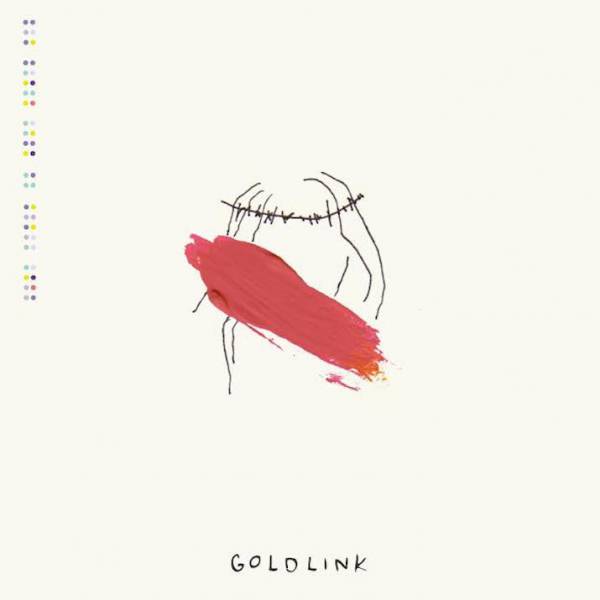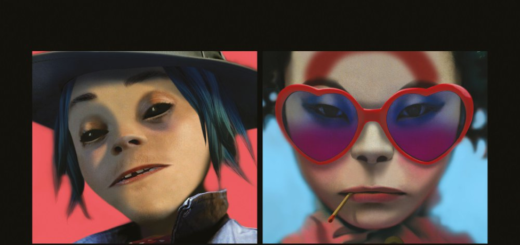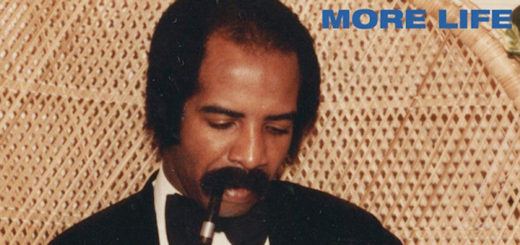AND AFTER THAT, WE DIDN’T TALK by GoldLink
Genre: Hip House, East Coast Hip Hop
Favorite Tracks: “Dark Skin Women,” “Unique”
A conversation about GoldLink’s recent output should likely start with his superior contemporary and current hip-hop golden boy, Chance the Rapper. Chance’s energy stems from his youthful excitement – if you’ve ever seen him live you can attest to this. It’s not that he doesn’t have decent beats or good lyrics, because he has both and has proven to be a steady workhorse of quality since he dropped ACID RAP several years ago. But the reason we want to root for Chance the Rapper is, in part, because of that youthful excitement. More often than not that spirit translates through his voice and, both while singing and while rapping, Chance’s voice is scratchy, sounding like it could break at any moment. Coated in vim and vigor, his enthusiasm is captured through the imperfections of his voice – whether it’s his crooning on the ARTHUR theme song, his spastic drawl on “Chain Smoking,” or his commanding screams of “Do you wanna fuck?” on the Skrillex track “Coast is Clear,” it’s easy to appreciate the liveliness of Chance through shear vocal energy alone. GoldLink clearly understands this idea, and tries his hardest to implement it on his newest album despite middling results.
GoldLink’s voice is also imperfect and his energy at times confidently hits Chance’s youthful intensity. The first three tracks of his full length debut AND AFTER THAT, WE DIDN’T TALK certainly bounce with a similar funk, even if these songs have an unevenness that comes from both odd musicality and GoldLink’s interesting vocal delivery. But these songs lack the life affirming joy that Chance tends to bring and thus, despite being cut from the same cloth, GoldLink is clearly another beast entirely. “Dark Skin Women” has some fun little jazzy moments and immediately, alongside “Zipporah,” seems to establish a vigorous musical tonality – something Chance’s music certainly does very well. Yet when we hit the fourth track, “Spectrum,” the beat and vibe has decidedly shifted to a minimalist house style. The spastic vocals that worked and drew the Chance comparisons in the first place are now subdued. Why the album starts out with tracks like “Dark Skinned Women” only to abandon a style that obviously matches GoldLink’s flow is confusing, bordering on frustrating. It flirts with a return to something funkier at times, though the idea is mostly abandoned for the duration of the LP (save for the production on “Unique” featuring Anderson Paak).
Unfortunately, much of hip hop maestro Rick Rubin’s production on AND AFTER THAT, WE DIDN’T TALK chooses to dismiss the potential energy GoldLink has to offer. Rubin has previously said his decision to work with GoldLink was because he was able to, in Rubin’s own words, “connect progressive rap styles with cutting edge dance music.” The wonderfully quirky production of his 2014 mixtape, THE GOD COMPLEX, featured the introduction of acid house, footwork, and bounce music to hip hop beats and ultimately demanded body movement, so it’s not hard to follow Rubin’s train of thought in that declaration. THE GOD COMPLEX was by no stretch a perfect mixtape, but as a major introduction to his style and ambition, it served as a unique calling card and, more importantly, slotted GoldLink into place as a rapper whose sensibilities fit simultaneously into left-of-dial hip hop and also a multitude of unique electronic styles.
But GoldLink’s follow-up lacks many of the interesting ideas that made him a valuable addition to the crowded hip-hop underground in the first place. While they touch on newer ideas that DO work with GoldLink’s vocal style and delivery, they never capture the raw body movement that made Rubin initially interested in the rapper. AND AFTER THAT, WE DIDN’T TALK, especially in its second half, comes off as stale. The album avoids abstract bangers in favor of low-key R&B songs which force GoldLink to sing, not rap, something that he’s not quite equipped to handle; songs like “Palm Trees,” “Late Night,” or even “Dance On Me” are neither interestingly produced nor do they represent Rubin’s excitement in GoldLink’s ability to “bridge the electronic DJ culture with hip hop in a way we haven’t heard before.” If anything, this album edges closer to minimalist cloud rap than it does the dancier experimental bounce beats he explored on THE GOD COMPLEX.
You can tell AND AFTER THAT, WE DIDN’T TALK is a deeply personal album for GoldLink which makes the final result semi-tragic – with better guidance and more interesting beats his personal reflection on an ex-girlfriend would probably feel more gratifying and emotional, but instead it comes off as poorly executed. Rubin’s “less is more” style of producing doesn’t help to serve GoldLink’s ambitions at all, which is a shame, as somewhere in his intentions exists something thoughtful. I hope that one day the young MC can bounce back and re-discover the “future bounce” sounds that put him in a position to work with Rubin in the first place.
Verdict: Do Not Recommend




